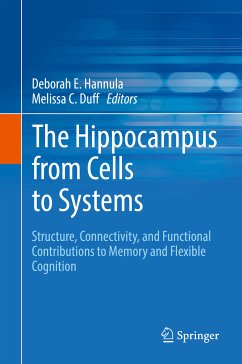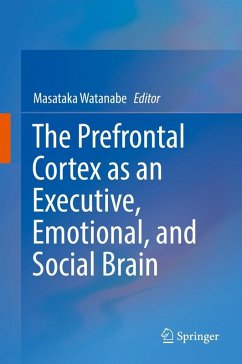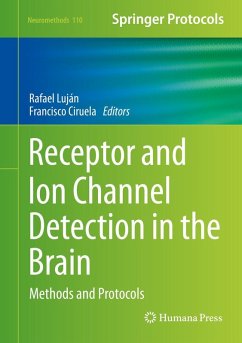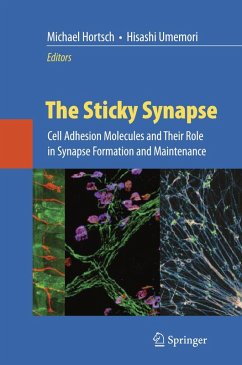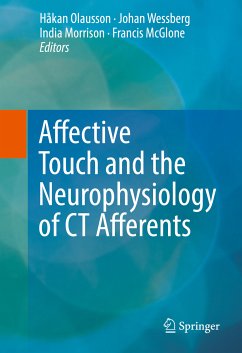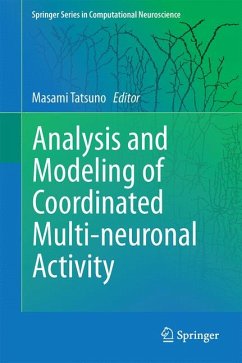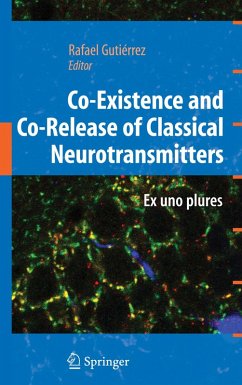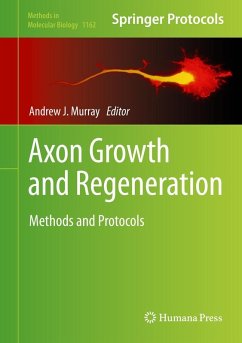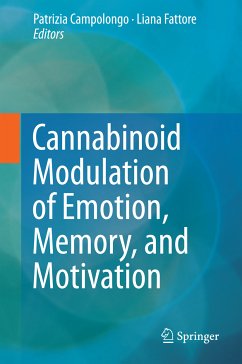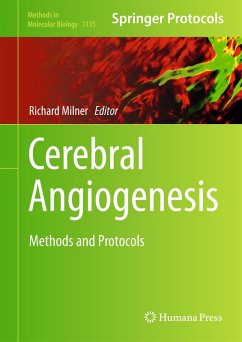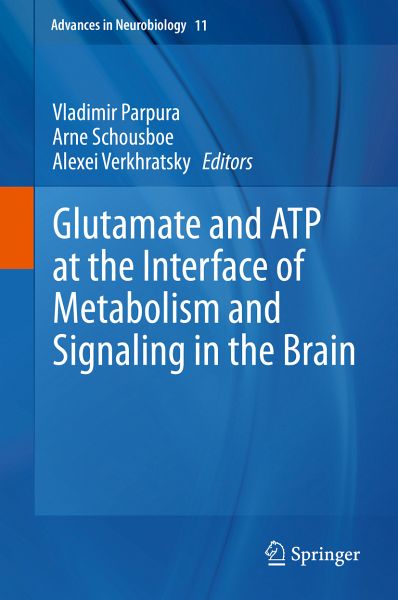
Glutamate and ATP at the Interface of Metabolism and Signaling in the Brain (eBook, PDF)

PAYBACK Punkte
36 °P sammeln!
ATP acts as main energy source and is pivotal for numerous signaling cascades both inside the cells (by fuelling various transport systems and donating phosphate groups) and between the cells (by chemical transmission). Similarly glutamate acts as an important molecule for both intercellular signaling though glutamatergic transmission and cell energetics by contributing to ATP production.In this collection of chapters, written by the leading experts in the field of cell metabolism and energetics, intracellular signaling and neurotransmission we covered various aspects of the interfacing betwee...
ATP acts as main energy source and is pivotal for numerous signaling cascades both inside the cells (by fuelling various transport systems and donating phosphate groups) and between the cells (by chemical transmission). Similarly glutamate acts as an important molecule for both intercellular signaling though glutamatergic transmission and cell energetics by contributing to ATP production.
In this collection of chapters, written by the leading experts in the field of cell metabolism and energetics, intracellular signaling and neurotransmission we covered various aspects of the interfacing between these two fundamental molecules. This book will be particularly useful for researchers, students, physicians and psychotherapists working in the field of neurobiology, neurology and psychiatry.
In this collection of chapters, written by the leading experts in the field of cell metabolism and energetics, intracellular signaling and neurotransmission we covered various aspects of the interfacing between these two fundamental molecules. This book will be particularly useful for researchers, students, physicians and psychotherapists working in the field of neurobiology, neurology and psychiatry.
Dieser Download kann aus rechtlichen Gründen nur mit Rechnungsadresse in A, B, BG, CY, CZ, D, DK, EW, E, FIN, F, GR, HR, H, IRL, I, LT, L, LR, M, NL, PL, P, R, S, SLO, SK ausgeliefert werden.




